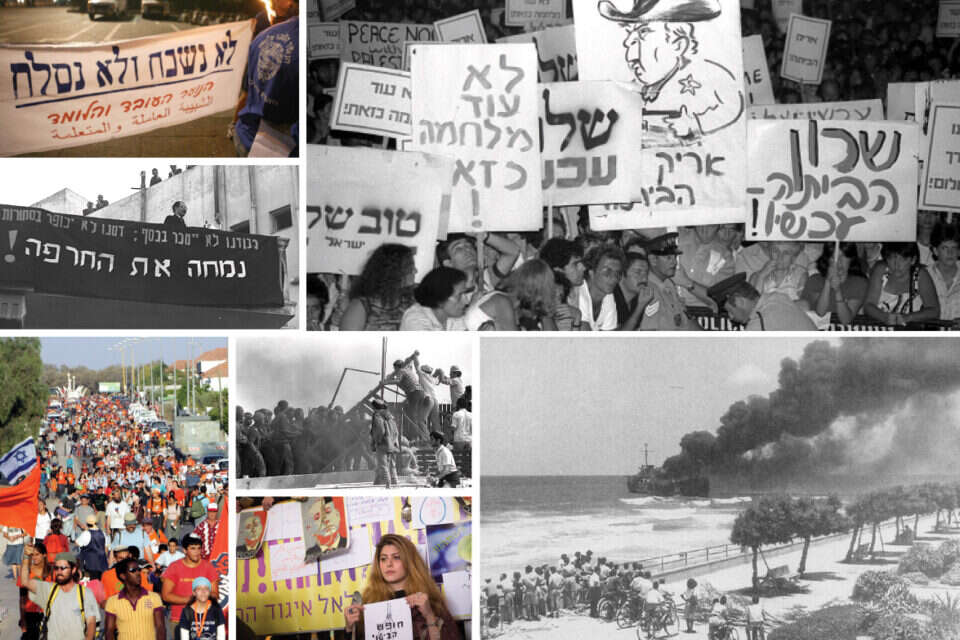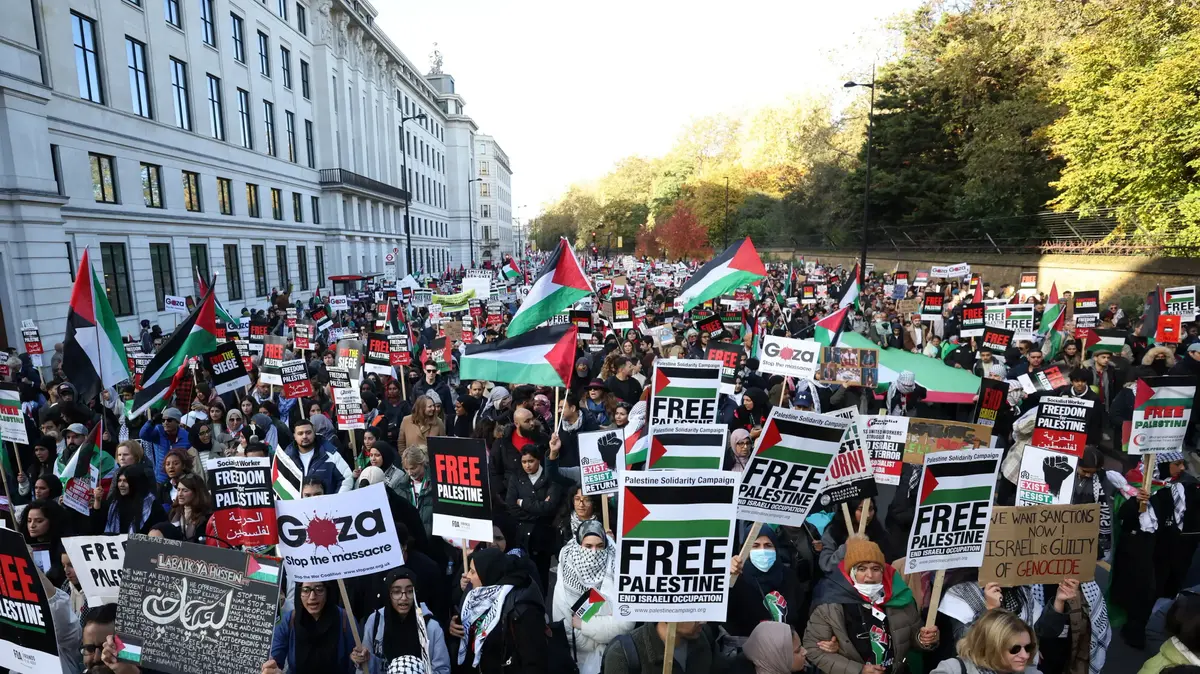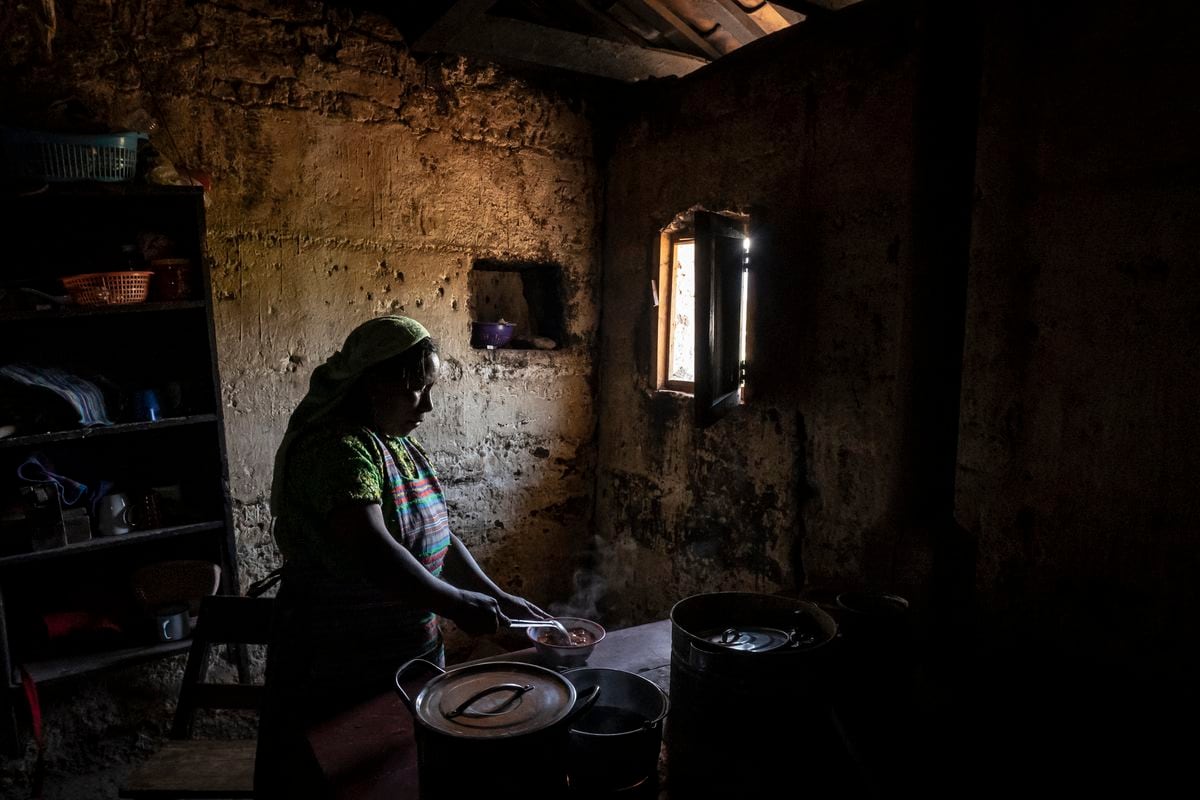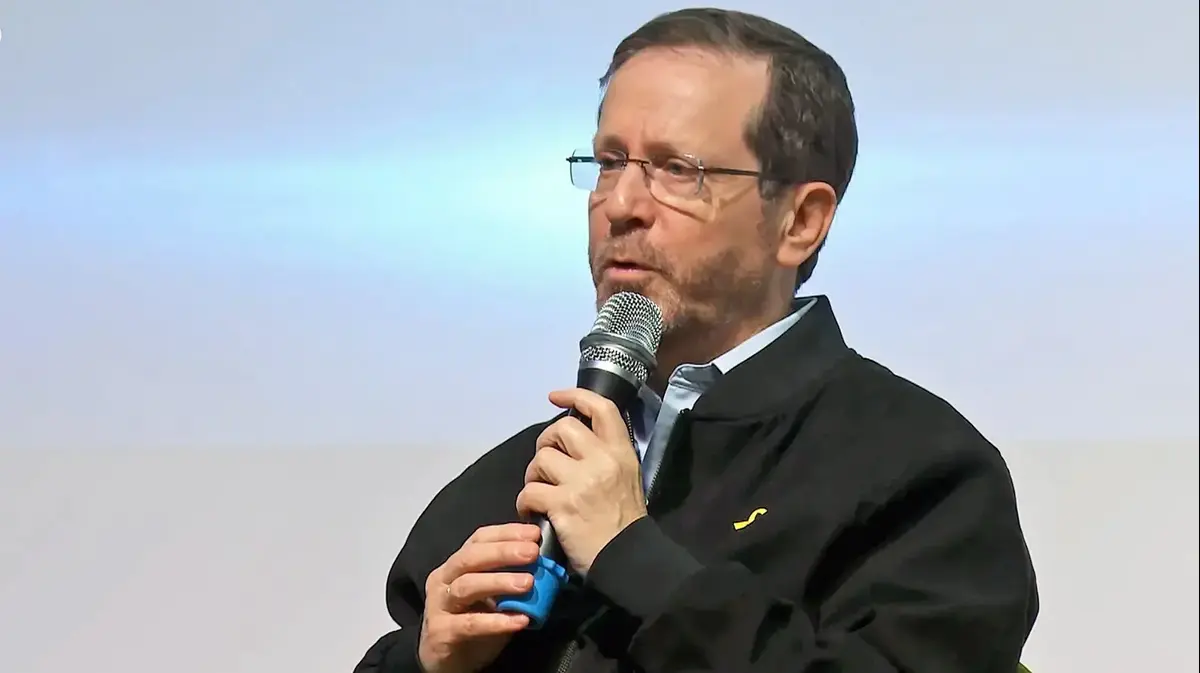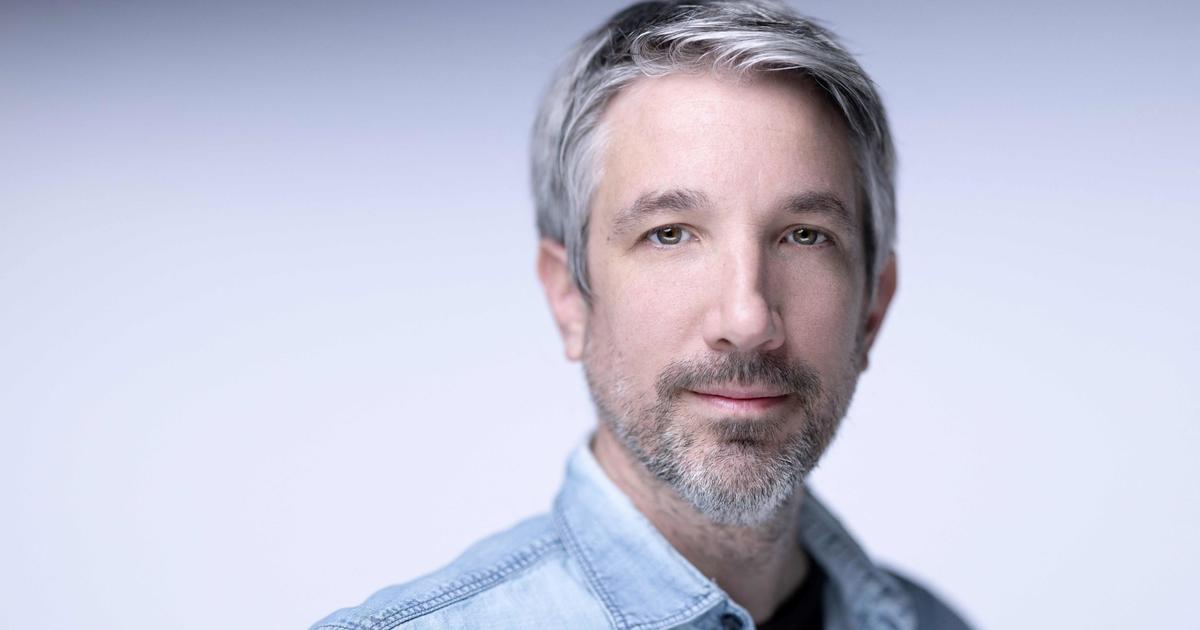"Hatred," wrote the poet Haim Gori at the end of the last century, "passes through the history of the settlement and the state throughout the days of this century. It only replaces haters and haters. I remember this hatred since I stood my ground. Everything has changed beyond recognition in the hasty and compressed sequence of the changes of the times. Only Hate, like the melody, 'always remains'...". Guri, a member of the generation of 578 and the Palmach, used to quote from time to time the saying of Yosef ben Matthew, the Jewish historian who worked in the ranks of the Romans: "There is no need to fight the Jews. They will kill each other."
1954 years after the destruction of the Second Temple, due to what the Sages described as "gratuitous hatred", the schisms and divisions - as research questions and as a focus for in-depth investigation - continue to occupy many. The "hate index" that the Panima movement publishes on the eve of Tisha B'Av is one of the expressions of this. Panima was established about seven years ago by public figures and leaders from all aspects of society, with the aim of dealing with the fragmentation and polarization in Israeli society through action plans in prominent areas of controversy. One of the tools Panima uses is the "hate index", a kind of mapping of the foci of controversy, division and division in Israeli society .
In this year's index, there is bad news and "good" news.
The bad news is that polarization and hatred are present and poison our lives, both on the political level and between different sectors of Israeli society.
The good news - if you can call it that - is that the hatred we experience today on the political level is largely a shallow and superficial hatred;
A hatred that is not deep, that is not the result of sharp disagreements, so perhaps it can be rooted out more easily.
The clear proof of this, probably, is that in the internal index 81% of the Israeli public is ready for its elected officials to compromise on some of their principles in exchange for unity.
This is 99% of Yesh Atid voters, 97% of Blue and White voters, 64% of Likud voters and 62% of Joint List voters.
These are data that somewhat soften the other hard findings.
Even when examining how differences of opinion on a political background affect our most private place, the family, the index shows that 57% do not experience differences of opinion on a political background at all, and even for the 40 percent who experience them, it has no effect on family relations.
Only 3% testify that the political differences of opinion harm the relationships within the family.
Regarding the last government, the one that claimed to be unifying and bringing people closer together, 40% of Israelis said that it deepened the divide in the nation compared to 39% who believe that it reduced it.
30% of Israelis said that they are currently afraid to express their political opinion in public.
Among left-wing voters, this is about half, while on the right, about a quarter expressed concern.
41% of Israelis think that the Likud party is the party that contributes more than others to widening the divide and hatred in Israel.
18% think that the Israel Beitenu party contributes more to this than all of them, 10% vote for the religious Zionist party and another 7% for Meretz.
In the left-right segment - 52% of the public, mainly Shas and Likud members, tend to hate left-wing voters. 43% tend to hate right-wing voters. 95% of Yesh Atid voters testified that they hate right-wing voters, as do 75% of Ra'am voters (In the survey the option was not given - I don't hate anyone).
The Direct Falls Institute, which conducted the survey for Panima, examined why the public considers parties to be divisive and hate-generating and found that only 20% of Israelis believe that the problem lies in the party's ideology.
On the other hand, 70% believe that the generators of hatred are inappropriate statements by party members and the blackening of entire sectors.
The CEO of Panima, Uri Efroni, is under the impression that "the public is very repulsed by the style and the insults, whether it is the 'eviction of the ultra-orthodox on wheelbarrows' in the Lieberman style or the labeling of the 'left' as a danger to the public."
The "hate index" also examines the attitude of Israelis to different parts of the Israeli public.
The analysis of the data shows that in the first and most disreputable place are the members of the Knesset with 51%, followed by journalists (38%), judges (34%), mayors (20%), police officers (17%) and school principals and teachers (5) %).
Furthermore: 62% of Israelis believe that "the media contributes the most to hatred and polarization", 31% believe that social networks are the greatest contributors to this and 24% see the judicial system and law enforcement as the body that contributes the most to deepening divisions and hatred.
"Polite codes for the family"
The former minister of education, president of Panima, Rabbi Shay Piron, is not surprised by the figures that are similar to those of last year.
Firon would have been happy to see more disputes on ideological grounds.
He believes that these are precisely what alleviates hatred and divisions.
"The more you are an ideologue and have a deep backbone - you do not build your identity on the negation of the other. The more empty you are - your ego is built on being right, because the other is worse. What happens in Israeli society is that because of the ideological depletion people invest more time in finding injustices in the other ideology, than in formulating their own ideology. The leadership on all sides is also guilty of this. It is built from the demonization of figures and ideas, and content is not always hidden behind it. The result is that emotions lead the public discourse and not ideology. Social networks, where there are almost no filters, only intensifying it".
You and your friends describe "social cohesion" as an antidote to hatred. Please describe to me two or three situations in which hatred and division erupt and your alternative in those situations. hatred versus social cohesion; preferably versus common.
"Rashit means that there is a difference between social solidarity and brotherhood. Brotherly - it means that we are brothers, that we are a family. The word brotherhood also hides the word brother. In the family, I help my brother even if we disagree, because he is my brother. The idea of Shemita, for example, in the Book of Leviticus, Doesn't make sense in a system of social cohesion, but it makes sense in a family system. If your brother goes bankrupt - you'll give him everything. The social cohesion I'm aiming for seeks to translate the relationships between communities, and instead of superficial etiquette codes, turn them into family codes. A family doesn't break up . They don't say traitor. They don't say rag. In the family they say: You are wrong. I will convince you."
Examples?
"When an average person hears about an accident on Route 60, the first questions that come to mind are - are these Arabs or Jews? Are they from the Jewish settlements? Do I know them? I strive for the reality that when you hear about a disaster in Bnei Brak or Tel Aviv - even if the disaster struck a rival Hate - they will feel sorrow.
Does poverty in a hated group make us sad?
When the authorities in hated communities collapse, do we come out to help them?
Cohesion is not being busy explaining why this is not my problem, but seeing your brother's problem, even the hated one, as your problem.
Is the difference in the level of services between a hospital in the north and a hospital in the center painful for those who live in the center?"
Firon is disappointed that the divisions and splits on a "tribal-sector" background are still dominant.
According to the "hate index", Israeli society tends to hate minorities: 40% of Israelis tend to hate the Arabs, 20% the ultra-Orthodox, 17% the settlers and 13% the LGBT community.
The highest hatred for Arabs is among right-wing voters (77%) and Likud (72%).
It is low, perhaps surprisingly, among the expatriates of the former Soviet Union and the voters of Israel Beitenu. On the other hand, the highest hatred for the ultra-Orthodox is among the voters of Israel Beitenu (55%). The seculars hate the ultra-Orthodox more than the Arabs. Among the haters of the ultra-Orthodox - 22% are left-wing voters In contrast, only 5% of ultra-Orthodox hate secularists and 0% of left-wing voters hate Arabs.
The sectarian demon is also still with us: 64% believe that even today there is a rift between Mizrahim and Ashkenazim, 33% of Israelis tend to hate people of BRI, 30% tend to hate Mizrahim, 26% tend to hate Ashkenazim and 11% tend to hate Ethiopians.
There are those who claim that for years we have been injected into our consciousness that we are a divided tribal society, on the eve of a fratricidal war, that solidarity and togetherness are at a low ebb, and that this description in itself gives us a perception that we will create a conflicted and dangerous society here, and that in the end - people get used to the idea that everyone here hates everyone.
"In my view, the State of Israel - after all - is a country with a lot of miracles, which prove that at the bottom we are spoiled and not spoiled. Even those who hate ultra-Orthodox people know who runs and initiates charities such as Yad Sara and Zaka, and also knows that they will help him.
As much as you hate Russians, in the end, when there is a war in Ukraine, Israeli young men and women will be there in the highest numerical ratio compared to other countries.
There is no country in the world that presents a model of pre-military preparatory schools and as many youth movements as we do.
Precisely because the base is a family, the call is for correction.
My involvement as an 'insider' is not intended to perpetuate but to minimize and correct.
Tisha B'Av is the time to do it."
This "hate index" - isn't it a bit like the reports in the media about suicide incidents, which the researchers claim only increase the phenomenon?
"I really often wonder what causes the public to move - whether when I tell them how good we are, or when I sound an alarm. Most of the year I am busy finding solutions. Israel Eldad tells a story: Once upon a time in his home there was a cabinet with religious items: a Hanukkah menorah, Shabbat candlesticks, a cup For Kiddush and also a statue of Titus. Why Titus? On Tisha B'Av, Eldad said, I stand in front of the statue - point to it and say to it: 'Where am I and where are you?'
"Each holiday has its holy uses. Doing the measure of hatred on the Sabbath is fine. It's like atonement for sins on Yom Kippur. This is the time of the year that is designated for this kind of reckoning. If I were to talk about the measure of hatred on Purim or Passover - then I Chamuch, but if I'm talking about the measure of hatred in T'Bav - it's a mitzvot that time has caused."
From your short experience in the political world - how many politicians are responsible for hatred? Does it shape their behavior and influence their decision-making?
"I won't name names, but there are politicians who, if there was a Nobel Prize for hatred, they would win it. There are those who use it as a constant work tool and there are those who create hatred, even if they don't feel that they are doing so."
Reassurance siren
Hatred has accompanied the people of Israel for many generations: fratricidal wars during the Second Temple period, the dispute between followers and opponents, the "season" during which Jews betrayed underground fighters from rival organizations to the British, and also the division in the kibbutz movement in the 1950s.
Prof. Yeshayahu Leibovitz once coined the phrase "Judonazis".
The settlers were often called "terrorists".
On the right they demanded to prosecute the "criminals of Oslo" and called the left: "Jews" and "pets".
The media was called "Tishkurot".
Israeli Arabs were called "fifth brother-in-law".
The seculars were called "rabbit eaters" and the ultra-orthodox, disparagingly, "penguins".
Conflicts on a sectarian background also accompanied us here: the "Chachachaim" of Dodo Topaz towards the Likud people, and Mizrahi speakers who spoke about the "Ashkenazis".
In February 1983, during a "Shalom Now" demonstration, movement activist Emil Grinzweig was murdered by a grenade thrown by Yona Avroshemi at the demonstrators.
In November 1995, Yigal Amir assassinated Prime Minister Yitzhak Rabin, in an event that became a historical breaking point between the right and the left.
Israel Harel, the founder of the Yesha Council, initiated the establishment of the "Forum for National Responsibility" in those days. The forum's main contribution to the polarized Israeli society was the "Contract of the Sea of Galilee" which was intended to regulate the relations between the various groups in Jewish society in Israel on the basis of common unifying principles. 60 people, including military personnel, journalists, politicians and public figures, gathered over many months for lengthy discussions. The hard-earned treaty made waves, but from a historical perspective it is doubtful if it had any effect.
Another initiative of Harel - the "Gavizon-Madan Treaty", had many times the impact.
To this day, it is practiced in academia, and it has become a useful and practical tool for resolving conflicts and achieving understanding between religious and secular people in hot spots of controversy that arise from time to time in this field.
Harel (84) actually sounds a siren of reassurance: "I don't think that the people of Israel have returned to the days of division and hatred of the Second House, or even to the difficult and gloomy days of the murder of Arlozorov or the drowning of Altalana. Today's hatred is not abysmal and there is little play in it - especially on social networks - that is intended to exacerbate and escalate and gain politically."
Harel also gets the impression that the foci of hatred today are mainly personal and not ideological.
On the other hand, according to him, there is still hatred of Haredim, hatred of Arabs and hatred of Mizrahim, and each of these communities also hates and not only hates.
With the exception of the Jewish-Arab conflict, which produces violence, in the hateful and other hateful sectors the product is mainly discrimination and less hatred, Harel is impressed.
breaking point
the altalana ring,
"Anywhere else in the world, an agenda like ours would have resulted in violence and terrible clashes, even a civil war. With us, things remained within the bounds of bearable and painful. The only moment when I felt a breaking point that was very difficult to fuse was the Rabin murder, and then I mobilized with others to try to nurse and heal and bandage the wounds of this fracture.
"With the exception of Rabin's murder, the hatred, as I have come to know it over the years, is not substantial but tends to be superficial. Even the focus of hatred and controversy that we have been experiencing for several years - 'yes Bibi or no Bibi' is a personal story. People today hate Netanyahu in an irrational way Rational. We saw this in the demonstrations in Balfour, and even there we still haven't reached the situations that have developed in other countries. Even in Balfour, the hatred was controlled. No one there stormed the Bastille to burn down the Prime Minister's residence.
Is Netanyahu not responsible for this hatred?
"He is responsible for many things, which can bring a public to oppose him with strong and matter-of-fact opposition, but not hatred, and a large public today hates Netanyahu from the bottom of their hearts."
Have you personally, or the settlement movement in Judea and Samaria that you represented, experienced actual hatred over the years?
"As a teenager in the Red Haifa, I was beaten by thugs of the Hapoel companies. Regarding the settlement, there was a deep hatred for figures like Rabbi Levinger or Daniela Weiss, and also hatred towards the camp. When I edited the 'Point', we quoted things from kibbutz statements there. I remember quoting people From there, they wrote that they were ready to join the Arabs in their war against these subhumans and that it was a pity that our parents did not perish in Auschwitz. Terrible things.
"Part of the settlers' hatred stemmed from jealousy on the part of those from whom we took the lead of the Zionist act. Shulamit Aloni and Yossi Sharid hated us to death. They were really ready for people to die. I still remember the words of Haim Bar-Lev, after the murder of the six yeshiva students in Hebron, who said that if they weren't there, they wouldn't have been killed. On the other hand, today the hatred is softer, and often - an expression of great frustration."
Did the senior politicians you knew use hate as a tool?
"Netanyahu used it and so did Yitzhak Rabin, but both of them, despite the impression created, still had limits. It did not reach, for example, what Trump did on Capitol Hill."
Are the hatreds of today rooted in the hatreds of the past?
"Little, if anything. But what can be said about the hatreds of the past is that almost every war of liberation of a people gave birth immediately after it to an internal war between those who came from the underground over the question of who would lead the independent state that had just been founded. In the Jewish War of Independence, despite Altlana and despite murders here and there, there were Very few martyrs against the background of a struggle for power. This means that we have learned a lot since the days of the Second Temple. There were isolated and very difficult events, but we did not reach what other nations reached, and from this we can conclude, without pretentiousness, about the virtues of the people of Israel."
Am I cheating?
Historian Prof. Anita Shapira, winner of the Israel Prize for the Study of the History of the People of Israel, who expanded her studies on Jewish, Zionist and Israeli history in the last 140 years, prefers to speak of a "divided society" rather than a "hating society".
Both today and in the past, according to her, the term hate is used excessively and exaggerates.
Shapira mentions, for example, the "London Agreements" between David Ben-Gurion and Ze'ev Jabotinsky, the two bitter rivals from the early 1930s, agreements that dealt with both a joint political change and the nature of the economy in a pre-state settlement.
"Ben-Gurion fried an omelette at the Jabotinsky Hotel and the two Zionist activists made an alliance between them, but what happened is that while the leaders were able to throw aside the enmities of the past - the sheep of their pasture was not able to do so. In the referendum they forced on Ben-Gurion in the Histadrut - he lost." .
Are the hatreds of today related to the hatreds of the past? Are they their derivatives?
"In my opinion, no. There have always been disputes between Zionists and non-Zionists, within the Zionist movement, between different methods for building the national home and the future state. Yes, a state or no state. A socialist or capitalist state and struggles not only over the rightness of the way, but also over who will rule. Today, On the other hand, the story is mostly personal and is not related to the controversies of the past. Today, there is an abysmal distrust of Netanyahu by half of the public and the parties. There are certainly those who hate him. I also belong to the camp that does not believe Netanyahu, but I do not hate him. This is mainly political enmity and concern for the future Jewish nation".
Ben-Gurion and Begin hated?
"I don't think there was hatred there. There was disagreement and there was a struggle for power and harsh expressions, but not hatred. It is a fact that in the biggest crisis that hit Israel in 1967, on the eve of the Six Day War, Begin went to Ben-Gurion and asked him to return to the prime ministership. This Teaches that there was a national responsibility and that the hatred was not deep. It was a dispute of a synagogue, but not gratuitous hatred.
"Today," says Shapira, "there are buds and displays of hatred and different visions regarding the future of the State of Israel. It really scares me. I'm not the only one. I'm very worried, and I'm not an extremist. It started with the demonization of one side, to which I belong, who was described as a traitor. Am I a traitor? Am I not a good enough Zionist? Until a few years ago, Netanyahu functioned as prime minister, not to my liking, but fine. He has changed, but even today I cannot see myself hating. Anxiety - yes. Hating - no."
Are we today a hateful and divided society?
"Divided - for sure. Hateful - I'm not sure."
Who benefits from the hatred?
"The extremists on the right. My biggest disappointment is with the ultra-Orthodox, who joined the extreme right that cultivates hatred for those who are not like it."
Is there a uniqueness to Israeli hatred?
"I don't think so. There is a big dispute over the future of the settlements project, but you can't hang this project only on the right. The left also initially supported the settlements."
Disagreement without hate.
Begin and Ben-Gurion, photo: Sa'ar Ya'acov, LM
Does hatred blind the judgment and vision of the politicians? Does it cause damage?
"You can say that the Altlana ring was the result of hatred, and that it damaged the IDF's armament at the beginning, but Ben-Gurion, to the best of my judgment, did not feel hatred.
He sought to dominate the government and thus apparently prevented the existence of militias in the State of Israel."
As a historian, is our situation today in the area of hatred and divisions worse or easier compared to the past?
"Worse, because the former leadership knew how to rise above, despite all the contradictions and rivalries, and had the good of the people of Israel at the top of their minds. Even Netanyahu himself has changed. In his first years, he was much more royal. The great contrasts during the Yishuv period on the eve of the establishment of the state were reflections of struggles in Europe Between fascism and Nazism and the left. Today you can't find such a reflection, but my feeling is that the crazy fringes are more dominant here than in other places. We excel at divisions and have to be careful of them. I'm a very optimistic person by nature, but in recent years I've started to worry."
The sample was conducted by Shlomo Filber and Zuriel Sharon through Direct Polls LTD for Panima on July 19, 2022, using a digital system combined with a panel, among 619 sampled adults (18+) who are a representative sample of all residents of the State of Israel.
The statistical sampling error +4.4% with a probability of 95%.
were we wrong
We will fix it!
If you found an error in the article, we would appreciate it if you shared it with us

